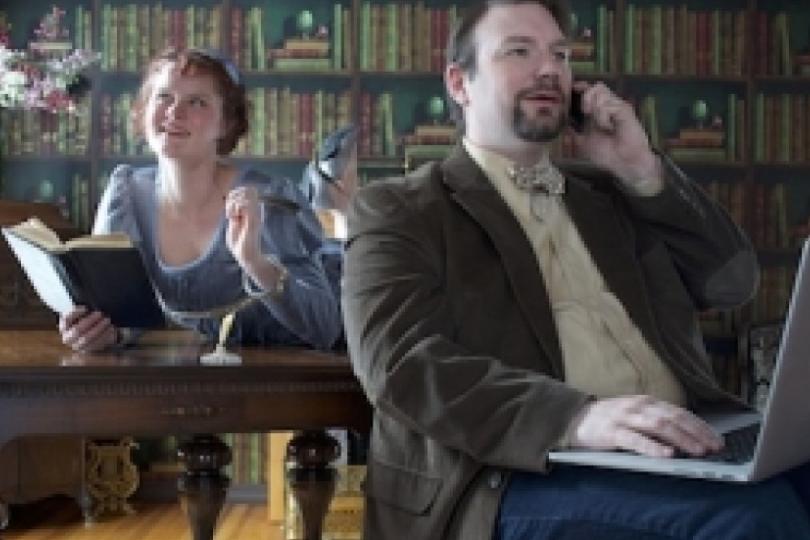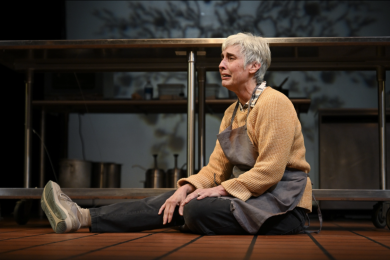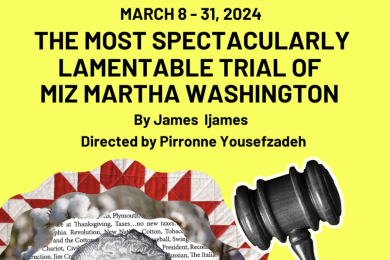REVIEW: Commonweal makes it all seem so easy
Review

Editor's Note: Our Indiegogo campaign is finally over and, thanks to you, it was a rousing success. Look for the new website coming very soon. If you have any additional questions or comments, email me.
In 2005, I did a month-long residency at The Cornucopia Art Center (now called simply the Lanesboro Arts Center) in the curiously pretty little town of Lanesboro, Minnesota, less than a half hour north of the Iowa border. An ex-railway stop, Lanesboro rebirthed itself as a cycling Mecca, turning its tracks into trails, and its Main Street into a charming selection of shops, bakeries, restaurants, art galleries—and a theater. The Root River, which winds its way under covered bridges and into Wisconsin, became a place for canoeing, tubing and kayaking—the whole situation a little unreal for a city boy, like stepping into It’s A Wonderful Life during the sunnier seasons before George’s world falls apart.
In the years since, I’ve found excuses to go down now and again—it makes a fun mini-road trip, especially for a couple or a small group. My latest excuse was Leah Cooper’s direction of Tom Stoppard’s Arcadia (at the Commonweal Theatre on Main Street through Nov. 9). I’ve prefaced this essay with a brief capsule of the town because it’s hard to separate the town from the theater—it’s the kind of place where soft-spoken Artistic Director Hal Cropp sees you in The Bakery next door to the theater the morning after the show and comes by your table to shake hands and apologize for not being able to host you at the performance.
There’s an effortlessness in Cropp’s manner that permeates their lovely 200-seat house, (designed by Karl Unnasch and just a glimmer in Hal’s eye back in ’05), and—at least in this case—the entire production within. As well as (with one or two exceptions) the large cast, led by Adrienne Sweeney’s remarkable combination of charisma, command and complete relaxation as the determined scholar Hannah Jarvis. For those of you unfamiliar with Stoppard’s work, the play spins a simple question of scholarship—how do we know what we know—into a time-traveling tale of love, sex, betrayal, and academic fame.
Leah Cooper handles this intellectual three-ring circus effortlessly as well, moving thirteen characters through two time periods across an intimate space with such little fuss the idea of “director” fades into the background and the characters command the stage—the only hiccup a propensity for blackouts that becomes wearying in the course of a nearly three-hour evening. Otherwise, the long performance passed with remarkable ease, in witty and erudite company, on a simple, elegantly designed set (by Kit Mayer)—our bellies filled with wine and delicious food from The Old Village Hall down the street (we even ran hand-in-hand through the rain to get to the theater in time for curtain). The word I used to describe Mr. Cropp’s manner—effortless—seemed apt for the entire weekend.
The only person really breaking a sweat was Mr. Stoppard himself. I’ve seen Arcadia three times, including the original Broadway production and its Broadway revival, so I’m not being flip when I say those occasional chunks of information Stoppard loves so much simply do not work. Whether its botany, physics or landscaping (yes, landscaping), Stoppard nearly scuppers his own play with eye-glazing recitations of encyclopedic breadth. The man is a brilliant writer—every word carefully chosen for rhythm, allusion and character as well as content but the very breadth of his talent proves these professorial monologues just fall flat on the stage. (Those of you familiar with my own work know what a bitter admission this is.)
All of which is meant as qualifier, not conclusion. Arcadia is ultimately a dazzling piece of theater, not for its erudition, but for the flesh and bloodiness of its characters—its desire to reveal people of great intelligence and ambition as, well, people. Intellectuals exist, and their lives are just as “real” as those lived in trailer parks, and all the other “lower depths” settings our highly educated playwrights seem to often prefer. Stoppard—in this case with the help of Ms. Cooper and Ms. Sweeney—gives us his usual intricate and ingenious construction, his smart, witty banter—but it is the human story that ultimately makes Arcadia a true epic experience.
Two more qualifiers:
- Yes, I realize Leah Cooper is technically my boss at MinnesotaPlaylist. For an overlong discussion of the conflict-of-interest inherent in this column, see here.
- I mention The Bakery and the Old Village Hall not as product placement (if only the world of theater critics worked that way), but because Lanesboro is a bit of a drive (2+ hours)—if you go, best to make a weekend of it—not difficult in the town that bills itself as “The Bed & Breakfast Capital of Minnesota.”




